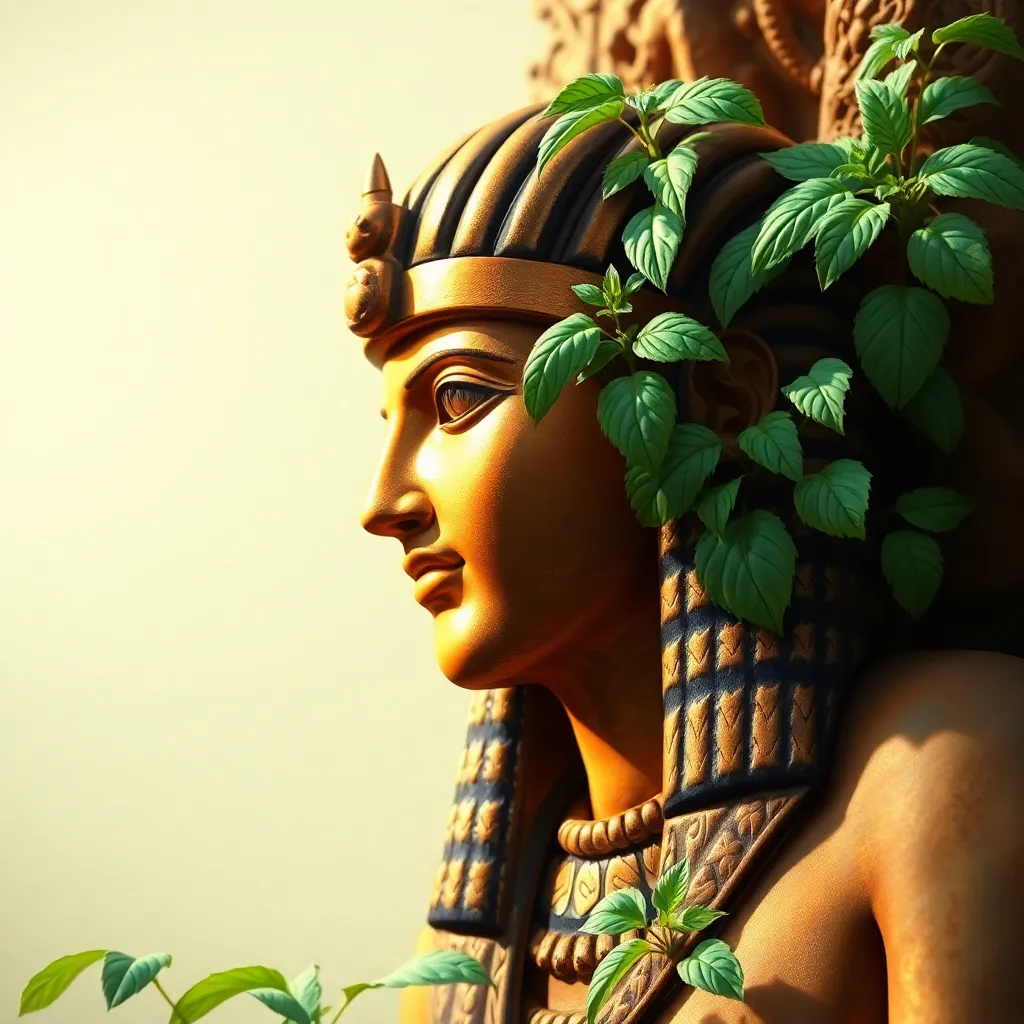The Healing Powers of the Sacred Basil in Egypt
I. Introduction
Sacred Basil, scientifically known as Ocimum sanctum, is a revered herb with deep roots in various cultures, particularly in Egypt. Known for its aromatic leaves and significant health benefits, Sacred Basil has been part of Egyptian culture for thousands of years.
Historically, this herb has played a crucial role in Egyptian society, both in everyday life and in spiritual practices. Its significance is reflected in ancient texts, religious rituals, and even in art.
This article aims to explore the multifaceted role of Sacred Basil in ancient and modern Egyptian culture, shedding light on its historical context, nutritional benefits, traditional medicinal uses, and contemporary scientific research.
II. Historical Context of Sacred Basil in Egypt
A. Ancient Egyptian practices and beliefs
In ancient Egypt, plants and herbs were not just for nourishment; they were integral to healing and spiritual practices. Sacred Basil was considered a symbol of protection and was often associated with the divine.
B. Sacred Basil in religious rituals and mythology
Regarded as a sacred plant, Basil was used in various religious rituals. It was believed to ward off evil spirits and was often placed in tombs to assist in the journey to the afterlife.
- Used in embalming processes
- Incorporated into offerings to gods
- Commonly found in household altars
C. Archaeological findings related to Sacred Basil
Archaeological discoveries have revealed that Sacred Basil was cultivated in ancient gardens and used in medicinal preparations. Remnants of Basil have been found in tombs and temples, indicating its importance in both life and death.
III. Nutritional Profile of Sacred Basil
A. Key vitamins and minerals
Sacred Basil is rich in essential nutrients that contribute to overall health:
- Vitamin K
- Vitamin A
- Iron
- Calcium
B. Antioxidant properties
The herb is known for its high antioxidant content, which helps combat oxidative stress in the body. This property makes it valuable in promoting longevity and preventing chronic diseases.
C. Comparison with other herbs
When compared to other popular herbs such as parsley and cilantro, Sacred Basil stands out due to its unique profile of essential oils and compounds, making it a powerful ally in health and wellness.
IV. Traditional Medicinal Uses of Sacred Basil in Egypt
A. Treatment of common ailments
In traditional Egyptian medicine, Sacred Basil has been used to treat various ailments, including:
- Respiratory issues
- Digestive disorders
- Skin infections
B. Role in herbal medicine systems
Sacred Basil is a cornerstone of many herbal medicine systems in Egypt, where it is often combined with other herbs for enhanced healing effects.
C. Anecdotal evidence of healing properties
Many users of Sacred Basil report improvements in their health, citing its calming effects, ability to reduce stress, and support for the immune system.
V. Modern Scientific Research on Sacred Basil
A. Overview of recent studies
Recent scientific research has validated many of the traditional claims regarding the healing properties of Sacred Basil. Studies focus on its essential oils and chemical compounds that contribute to its health benefits.
B. Potential benefits for mental health
Research suggests that Sacred Basil may help reduce anxiety and depression. Its adaptogenic properties support mental resilience and overall emotional well-being.
C. Anti-inflammatory and antimicrobial properties
Scientific studies have shown that Sacred Basil possesses significant anti-inflammatory and antimicrobial properties, making it effective against various pathogens and contributing to overall health.
VI. Methods of Consuming Sacred Basil
A. Traditional preparations (teas, tinctures, etc.)
In Egypt, Sacred Basil is commonly consumed in various forms:
- Herbal teas
- Tinctures
- Infused oils
B. Culinary uses in Egyptian cuisine
Besides medicinal uses, Sacred Basil is also a flavorful addition to many Egyptian dishes, often used in salads, dips, and sauces.
C. Essential oils and aromatherapy applications
The essential oil extracted from Sacred Basil is widely used in aromatherapy for its soothing and uplifting properties, often used in diffusers and massage oils.
VII. Cultural Significance and Symbolism of Sacred Basil
A. Sacred Basil in Egyptian art and literature
Throughout history, Sacred Basil has been depicted in Egyptian art and literature, symbolizing healing and protection. It is often associated with various deities, emphasizing its sacred nature.
B. Its role in modern Egyptian culture
Today, Sacred Basil remains important in Egyptian culture, often used in traditional medicine and cuisine. Its historical significance continues to be celebrated.
C. The herb’s symbolism in spirituality and healing
In modern spirituality, Sacred Basil represents purity and healing. It is often used in rituals to promote well-being and protect against negative energies.
VIII. Conclusion
A. Summary of the healing powers of Sacred Basil
In conclusion, Sacred Basil holds a revered place in Egyptian culture, recognized for its healing powers, nutritional benefits, and spiritual significance.
B. The importance of preserving traditional knowledge
As modern science continues to validate ancient wisdom, it is crucial to preserve the traditional knowledge surrounding Sacred Basil and its uses.
C. Future directions for research and application
Future research should focus on the therapeutic applications of Sacred Basil, exploring its potential in modern medicine and health practices, ensuring that this ancient herb can benefit future generations.




